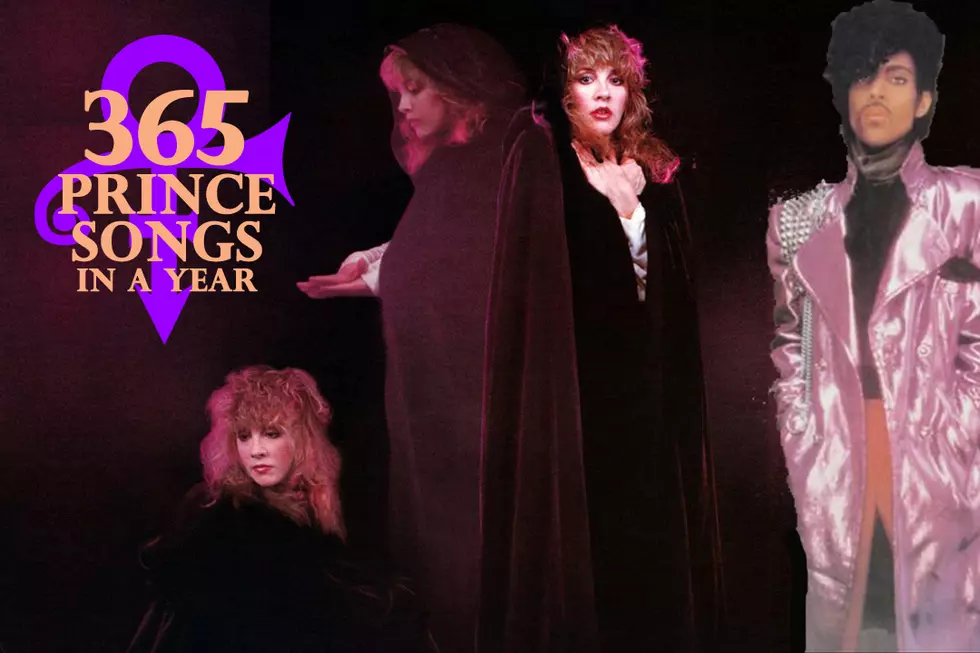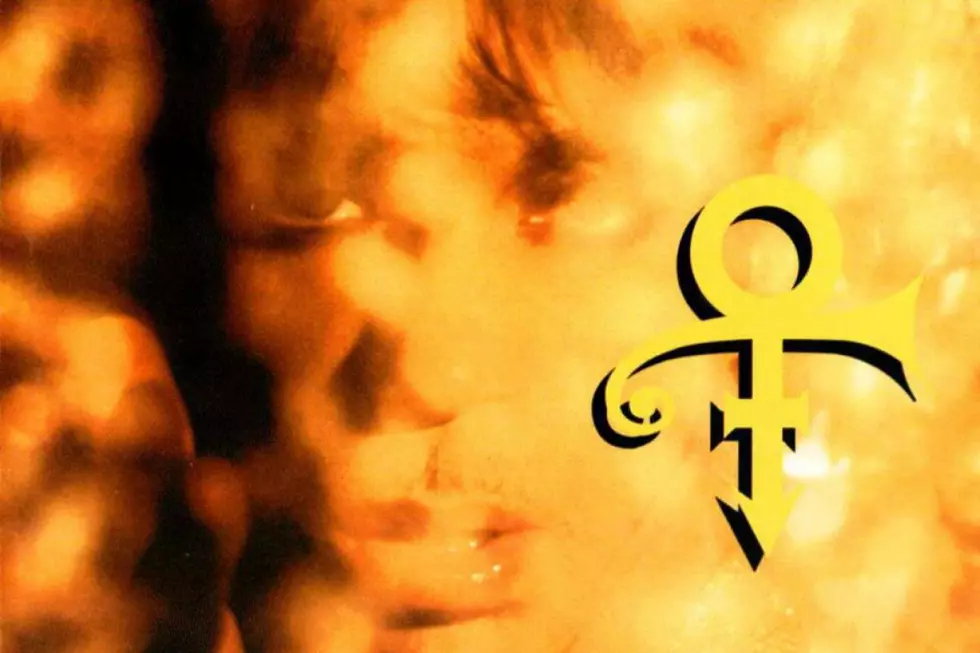
Prince’s Sly Stone Obsession Shines On ‘Walk Don’t Walk': 365 Prince Songs in a Year
To celebrate the incredibly prolific, influential and diverse body of work left behind by Prince, we will be exploring a different song of his each day for an entire year with the series 365 Prince Songs in a Year.
Without Sly and the Family Stone, it's fathomable (albeit fairly trauma-inducing) to imagine that there would also be no Prince.
At least, it certainly wouldn't be the Prince that we now know. The Revolution - the multiracial, inter-gendered, formidably talented backing band Prince had assembled in the early '80s - was modeled almost perfectly after the Family Stone, conceived by Sly Stone almost 20 years earlier.
Sly and the Family Stone didn't just create music about unity, they personified it, and Prince had worked painstakingly on devising a band that would symbolize the same inclusive spirit, striking similar notes about equality—commencing a "revolution."
But it's just as true that Sly's influence was equally as prominent a presence in the musical aspect of Prince's lifework, not just its symbolic veneer. And it wasn't nearly limited to the Revolution's mid-'80s reign.
Case in point: "Walk Don't Walk," the sunny, mid-album hosanna from 1991's Diamonds and Pearls that radiates with the Family Stone's musical sensibility.
The song introduces itself with a shimmering tambourine that, in sync with computerized claps, instructs the rhythm to New Power Generation drummer Michael B.'s breezy flits between toms and cymbals. Prince and backup singer Elisa Fiorillo deliver vocals in endearing unison, evoking Sly and Rose Stone's dynamic. A softly ascending piano melody enters, slowly elevating the song to its chorus: a beam of sha-la-la-la-la's that captures the uncompromisingly optimistic character of much of Stone's work.
Michael B., in fact, was probably the perfect collaborator for the song. He had, after all, received a formal Sly and the Family Stone briefing from Prince himself. "He played me some of the first Sly Stone records I ever heard," he told Rolling Stone. "That was an education I couldn't have received anywhere else."
A strange fit on the Diamonds and Pearls album, situated between "Gett Off" a suggestive R&B swinger and "Jughead," a forceful vault into hip-hop. But this interruption of the continuity woven by Prince's exploration of contemporary urban stylings found on Diamonds and Pearls is but one example of Prince's infinite regard for Sly Stone. Prince could (and did) evolve from his late-'70s beginnings, adapting often seamlessly to the shifting musical milieu that surrounded him, but he could not (and would not) abandon the very musical foundation that propelled him into pop mastery in the first place.
And apparently, "Walk Don't Walk" wasn't Prince's first, or even most convincing, emulation of Sly Stone. Chaka Khan, a close friend of Sly, recalled to Billboard that she once received a phone call inviting her to visit Sly Stone in the studio. Except, it wasn't Sly Stone on the other end of the line.
"I was completely fooled," she said. When she arrived at the studio, Prince revealed himself as the one who made the call. "And that's how we met."
The affection between Prince and Sly and Family Stone went both ways. Family Stone bassist Larry Graham performed on tour with Prince between 1997 and 2000. In 1998, Graham released the solo album GCS 2000, which was co-produced and co-arranged by Prince.
In 2016, following Prince's tragic death, Graham held a memorial service at Prince's church, the Minnetonka Jehovah's Witnesses Kingdom Hall. Graham is famously credited with introducing Prince to the religion during the 1980s, responsible for the biblical subject matter prominent in much of Prince's music.
We (correctly) praise Prince for—among his litany of praiseworthy qualities—his roaring originality. But it's a disservice to do so without appreciating the vast range of musical influences his genius gracefully channeled. And it isn't limited to transparent homages like "Walk Don't Walk," it's observable on each Prince album: the medley of differing styles absorbed and reprocessed through his own artistic machinery, and from it emerging a piece of musical artistry that is wholly, unambiguously Prince.
Prince Albums Ranked in Order of Awesomeness
More From Diffuser.fm









